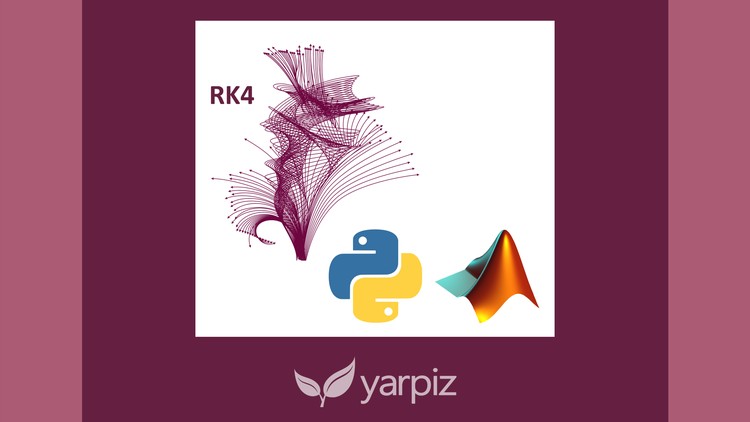
From theory to implementation
What you will learn
Implementation of Runge-Kutta in Python
Implementation of Runge-Kutta in MATLAB
Solving System of Nonlinear Differential Equations
Simulation of a Lotka-Volterra (Predator-Prey) System
Why take this course?
**Course Overview:**
In this comprehensive course, we’ll take you from the foundational theory of RK4 to its practical implementation in two of the most popular programming languages for scientific computing: **Python** and **MATLAB**. By the end of this course, you’ll be able to confidently apply RK4 to solve real-world ODEs.
**Why Take This Course?**
– **Hands-On Learning:** Implement RK4 from scratch in both Python and MATLAB.
– **Real-World Application:** Discover the power of RK4 by solving the Lotka-Volterra equations, a classic model in ecology known as the Predator-Prey model.
– **In-Depth Understanding:** Grasp the theoretical underpinnings of numerical methods for ODEs and how RK4 stands out among them.
– **Flexible Learning:** Learn at your own pace, with the flexibility to revisit concepts as needed.
**Course Highlights:**
– 📚 **Theoretical Foundations:** Explore the mathematics behind the Runge-Kutta Method, understanding the reasons behind its robustness and accuracy.
– 🧰 **Programming Skills:** Gain expertise in implementing numerical solutions using Python and MATLAB, enhancing your problem-solving capabilities.
– 🚀 **Practical Examples:** Work through examples, including the Lotka-Volterra model, to see how RK4 can be applied in various scientific fields.
– 🤝 **Real-World Case Studies:** Analyze case studies where RK4 has been successfully implemented to solve real-world problems.
– 📈 **Interactive Exercises:** Engage with interactive coding exercises that reinforce your understanding and provide hands-on practice.
**What You Will Learn:**
– The mathematical framework of the Runge-Kutta Method, specifically RK4.
– How to implement the RK4 algorithm in both Python and MATLAB from the ground up.
– Techniques for solving ODEs using the Lotka-Volterra model as a practical example.
– Best practices for numerical analysis and how to avoid common pitfalls.
– Strategies for debugging and optimizing your code for performance.
**Who This Course Is For:**
This course is ideal for:
– Advanced students in mathematics, physics, engineering, or computer science with some programming experience.
– Professionals in scientific computing, engineering, data analysis, and related fields who wish to expand their skill set.
– Hobbyists and enthusiasts who are fascinated by the application of numerical methods in solving real-world problems.
Embark on this journey with the Yarpiz Team, your guide to mastering the Runge-Kutta Method in Python and MATLAB. Enroll now and transform your approach to solving ODEs! 🎓✨